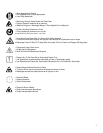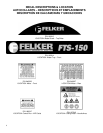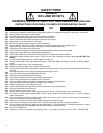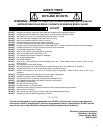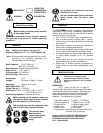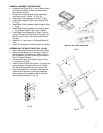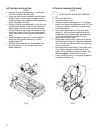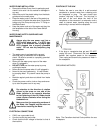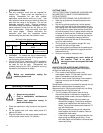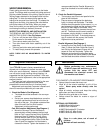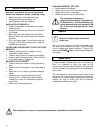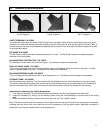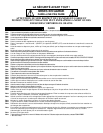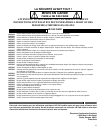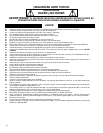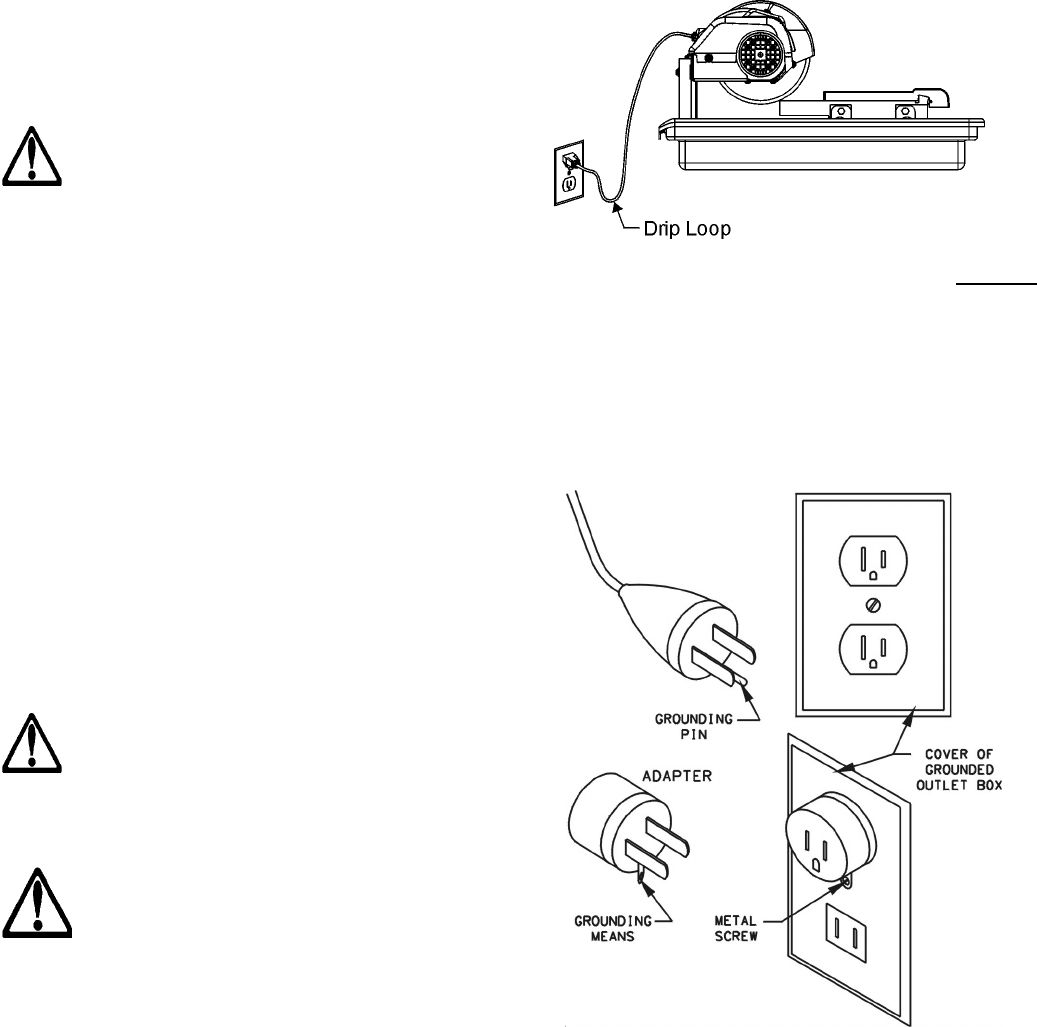
13
WATER PUMP INSTALLATION
• Remove the Water Pump from its packaging and
check it to be sure it is not cracked or damaged in
any way.
• Attach the end of the plastic tubing from the blade
guard and to the water pump.
• Place the water pump in the rear of the water tray
and be sure it is below the water level. Route 8mm
tubing out of the Pump and up to the “Y” Fitting on
the Blade Guard.
• Keep the power cord out of the water and plug into
the receptacle on the side of the Power Switch
Housing.
WATER PUMP SAFETY GUIDELINES AND
MAINTENANCE.
Always plug the saw power cord into a
GFCI outlet when using. If a GFCI type
outlet is not available, use a plug-in type
GFCI plugged into a properly grounded
outlet. Do not use any temporary plug
adapters.
• The water pump is equipped with a ground
electrical plug, to reduce the risk of possible
shock. Be sure to connect to a properly grounded
type receptacle.
• Never pick the water pump up out of the water
when it is plugged in.
• DO NOT EVER use the water pump to pump
anything but water.
• Never service the pump when it is still plugged in.
• Never let the pump operate dry. It is self-cooled
by pumping water. Dry use will cause the pump to
fail.
• Maintain regularly and clean out debris from intake
screen.
• Check the power cord for nicks or frays and never
try to alter the power cord in any way.
Pay attention to the direction of rotation
shown by the arrow on one side of the
Blade (rotation is the opposite direction
to the tightening of the nut). Blade should
rotate counter-clockwise when facing the
bladeshaft nut.
Make sure that the supporting surfaces of
the Blade, the Flanges and the arbor are
clean before installing the Blade.
ELECTRICAL CONNECTIONS
• ONLY use a grounded circuit.
• Use the correct plug and outlet.
• Check that the main voltage is identical to that of
the machine.
POSITION OF TILE SAW
• Position the saw to one side of a wall-mounted
receptacle to prevent water from collecting onto
the receptacle or plug. The user should also
create a “drip loop” in the cord. The “drip loop” is
that part of the cord below the level of the
receptacle, or the connector if an extension cord is
used, to prevent water traveling along the cord
and coming in contact with the receptacle.
• If the plug or receptacle does get wet, DO NOT
unplug the cord. Disconnect the fuse or circuit
breaker that supplies power to the receptacle.
Then unplug and examine for presence of water in
the receptacle.
GROUNDING METHODS
Note: The Canadian electrical Code prohibits the use
of adapters.



